“Alloimmunization” has occurred (gasp!), and your patient now “has an antibody.” Dr. Chris Tormey wants you to understand why some people make these antibodies and others just don’t.
NOTE: Continuing Education credit for this episode has expired. See below for details.

Dr. Chris Tormey
Emerging Information
Dr. Chris Tormey has made understanding this very issue, alloimmunization to non-ABO blood group antigens, the centerpiece of his research efforts. He shares plenty of new information in this interview that answers many of the above questions. He also shares a real-world story of a patient who narrowly averted disaster as a result of undetected alloimmunization (what Chris and his team did to avoid a calamitous outcome will surprise you!). Be prepared, though; he will also scare you a little, with quotes like this one below:

Dr. Chris Tormey
Emerging Information
Dr. Chris Tormey has made understanding this very issue, alloimmunization to non-ABO blood group antigens, the centerpiece of his research efforts. He shares plenty of new information in this interview that answers many of the above questions. He also shares a real-world story of a patient who narrowly averted disaster as a result of undetected alloimmunization (what Chris and his team did to avoid a calamitous outcome will surprise you!). Be prepared, though; he will also scare you a little, with quotes like this one below:
About My Guest:
Chris Tormey, MD, is a pathologist who is board-certified in Clinical Pathology as well as Blood Banking/Transfusion Medicine. He is an Associate Professor in the Department of Laboratory Medicine at Yale University in New Haven, CT. He serves as Medical Director of the Transfusion Service at VA Connecticut Healthcare in West Haven, CT, and also provides clinical pathology, transfusion, and laboratory hematology services at Yale-New Haven Hospital. Dr. Tormey is the Director of the Transfusion Medicine fellowship program at Yale, and teaches students, residents, and fellows at the Yale School of Medicine.
Chris has several investigative interests, including, most prominently, the topic of this interview, Alloimmunization to non-ABO antigens in the settings of transfusion or pregnancy. He is widely published, and has won several awards for his research and teaching efforts. In 2014, the American Society for Clinical Pathology named him to the prestigious “40 under Forty” list of outstanding young leaders in pathology.
Dr. Tormey is a graduate of New York Medical College and trained in Clinical Pathology and Blood Banking/Transfusion Medicine at Yale.
Continuing Education Expired
This podcast episode offered continuing education credit for two years from its release date, but is no longer eligible for such credit.
To find Blood Bank Guy Essentials Podcast episodes with active continuing education opportunities, Click here or visit Transfusion News Continuing Education on Wiley Health Learning.
DISCLAIMER: The opinions expressed on this episode are those of my guest and I alone, and do not reflect those of the organizations with which either of us is affiliated. Neither Dr. Tormey nor I have any relevant financial disclosures.
Further Reading:
- Great article summarizing many parts of what is discussed in this episode (NOTE: Be patient; the article may take a few minutes to come up): Gehrie EA and Tormey CA. The Influence of Clinical and Biological Factors on Transfusion-Associated Non-ABO Antigen Alloimmunization: Responders, Hyper-Responders, and Non-Responders. Transfus Med Hemother 2014;41:420–429.
- Article Dr. Tormey mentioned regarding alloimmunization in sickle cell patients: Chou ST et al. High prevalence of red blood cell alloimmunization in sickle cell disease despite transfusion from Rh-matched minority donors. Blood 2013;122:1062-1071.
- FDA Blood Donation and Transfusion Fatalities Listing: FDA web site
- Article on preventing and mitigating effects of alloimmunization:Hendrickson JE et al. Red Blood Cell Alloimmunization Mitigation Strategies. Transf Med Rev 2014;28(3):137-144.
- Study on how often antibodies disappear (“evanescence”): Tormey CA and Stack G. The persistence and evanescence of blood group alloantibodies in men. Transfusion 2009;49:505-512.
- Study on record fragmentation (patients visiting multiple hospitals for care): Unni N et al. Record fragmentation due to transfusion at multiple health care facilities: a risk factor for delayed hemolytic transfusion reactions. Transfusion 2014;54:98-103.
Music Credit
Music for this episode includes “Cuando te invade el temor” and “Reflejo,” both by Mar Virtual via the Free Music Archive. Click the image below for permissions and license details.




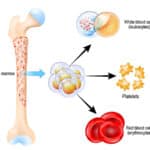

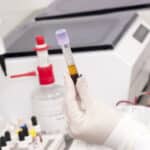



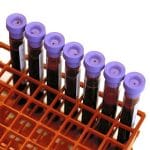
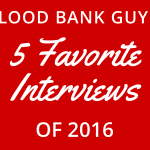
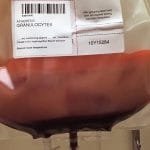
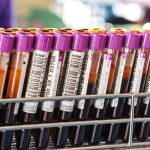
FANTASTIC episode thank you! I wish Chris had a little longer to expand on the HLA type of the recipient, which I think has great potential in certain circumstances. I also wonder whether Chris would have considered putting his five antibody patient on IVIG and watching, rather than an exchange transfusion, particularly as he already had a GI bleed? There is always the chance that the “pneumatics” involved in the exchange could have “blown” a fragile clot.
Lastly, NEVER criticise those pesky antibodies; some of us have made a career out of identifying them and finding rare donors for transfusion!!!!!!!!!!!!!
Malcolm, I wish we could have explored that more, as well, but as Chris described it, we were trying to give a “primer course” on alloimmunization, and that concept just felt too “advanced” for that target. I’ll see if I can get Chris to comment on the IVIG, but my feeling is that either course is justifiable. I believe their decision was guided by their assessment of the urgency of the clinical situation given the patient’s underlying medical issues, as well. Finally, all criticism is tongue-in-cheek against a background of respect! I appreciate your kind words, as always.
-Joe
Malcolm, I checked in with Chris, and here’s what he says:
The scenario is scary. I don’t think that Dr. Chris Tormey mentioned the method used to detect antibodies. Was retesting of the first sample possible using other method such tube method, for example?
Badie, I sent Dr. Tormey your question, and here’s his response:
Thank you for making blood bank easier to understand Mr. Joe! I super enjoyed this podcast. 🙂
I’m very glad you liked it!
-Joe
I enjoyed listening and I learned alot, thank you,Joe. However, I was expecting the mention of ‘responders’, ‘non-/super-responders’ with regards to alloimmunisation, especially I would like to know if there are any molecular/genetic factors that determines a blood recipient’s response to foreign RBC antigens. Thanks
Moy, I understand, and if we had more time, Dr. Tormey and I would have been glad to explore those issues more. If you look above the comment section, you will find listed as the first reference a terrific article Chris and I mentioned that describes those very issues (in case you don’t feel like scrolling up, here it is: Gehrie EA and Tormey CA. The Influence of Clinical and Biological Factors on Transfusion-Associated Non-ABO Antigen Alloimmunization: Responders, Hyper-Responders, and Non-Responders. Transfus Med Hemother 2014;41:420–429). I think that article will answer most of your questions about those somewhat more advanced topics. Thanks for writing.
-Joe
Hi , thank you for your efforts,
My question about the way that descover undefined ab in first hospital ? What it is ?
Dct & Ict was negative in first hospital ?
See the response I quoted from Dr. Tormey above. They used both gel (column agglutination) and LISS-enhanced tube testing, and the antibody screen (indirect antiglobulin test, if you will) was completely negative on both platforms. Direct antiglobulin tests (DAT, or what I think you mean when you write “Dct”) are not routinely done before transfusion, as there is a very high false positive rate in hospitalized patients. However, the DAT was positive post-transfusion, and though Dr Tormey did not specifically report it, I’m assuming it was negative on the pre-transfusion sample when they went back and checked it.
-Joe
Is alloimmunization respond rates equal to anamnestic respond rate? Someone meeting the anti D for the second time will respond strongly than the same person meeting a less immunogenic antigen? Age matter in the same way?
I had suggested plasma exchange on a strong 4+ warm auto patient and was immediately shot down by a fellow blood banker. She said it was useless because the patient would be making antibodies again and again. Is plasma exchange useful in the warm auto case? Is Steroid better?
Heard of Health Level 7 a lot. Will Blood Bank Community uses this as a clearing house? Asking for the elderly to bring a card is not realistic. Some of their families may be out of state or out of country.
Lot of questions there, Bec, and I’m not sure I can answer all of them, so I’ll tackle some of them.
-Joe